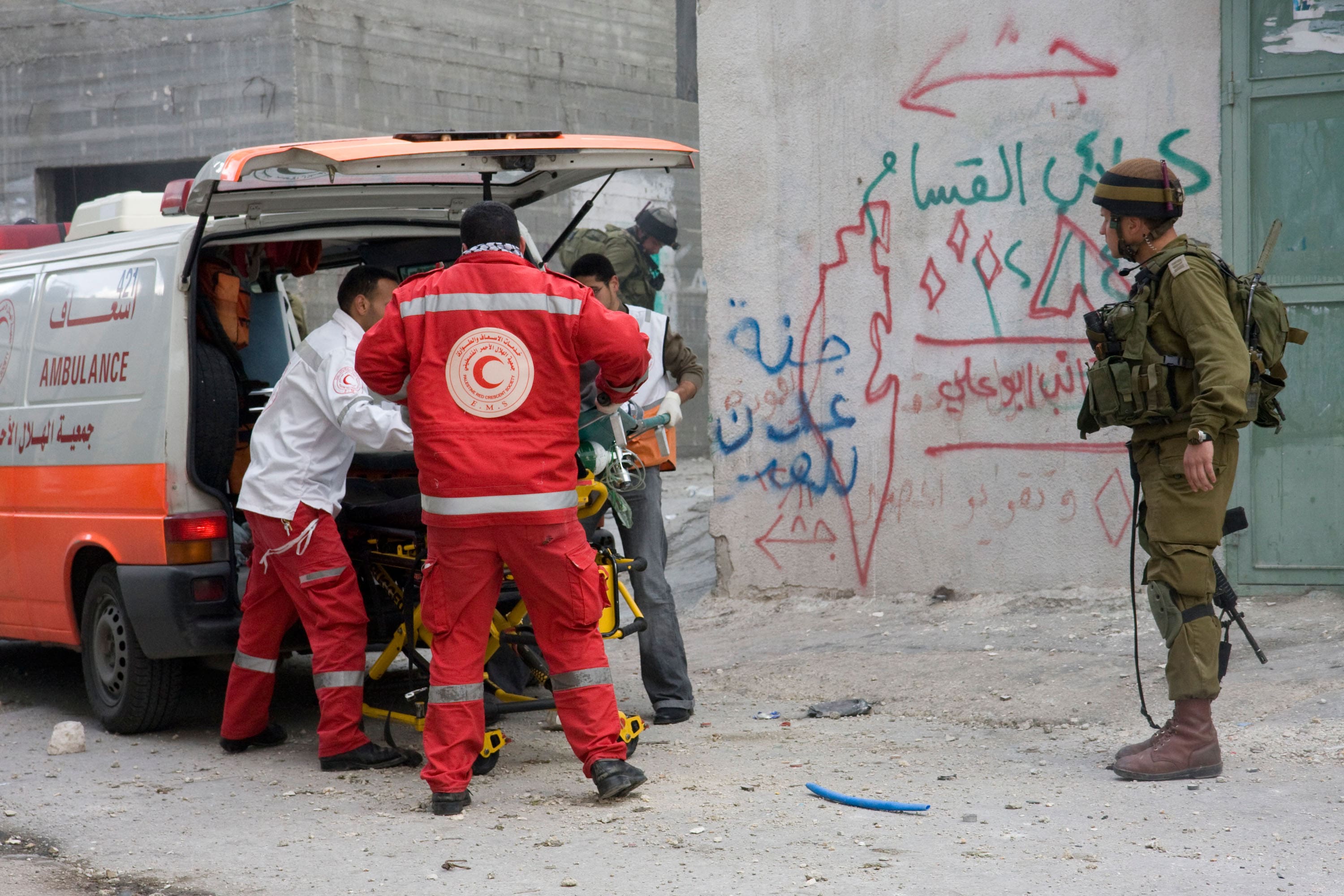
The collapse of the Palestinian Authority (PA) would cause a significant shock to the Palestinian health sector. The extent of the shock, however, depends on the behavior of the Israeli regime and the international community in the aftermath, especially in terms of humanitarian assistance. Since the Palestinian Ministry of Health (MoH) was established with the 1993 Oslo Accords, the donor community has invested hundreds of millions of dollars in building and sustaining this institution, a fundamental component of the Palestinian state it was meant to support. As a result, the MoH has predominantly administered the public health sector in the West Bank and Gaza for the last three decades.
Furthermore, many external humanitarian bodies that work in the West Bank and Gaza partner with the MoH in efforts to build local capacity. Thus, a collapse of the PA, and by default, the MoH, would leave a vacuum not just in direct health provision, but also in the presence of a central body to which external aid for health-related matters is directed.
Dire Impacts on Health Provision
The most immediate shock following the collapse of the PA would likely be to the provision of direct healthcare services. As of 2020, public hospitals make up about a third of overall hospitals in the West Bank, and close to 40% in Gaza. The number of beds per 1,000 residents in Palestine (1.3) is well below the global average (2.9), and the inability of public hospitals to function would greatly reduce the number of facilities able to provide advanced and long-term care to Palestinians.
The lack of service provision would not be felt evenly; it is most often Palestinians with fewer resources who access services at public hospitals and primary care facilities. The MoH is also the supervisory and regulatory body of the health system, issuing medical licenses and overseeing pharmaceuticals. This is a state-level duty, not one that an NGO could inherit, and it is unclear how this would be handled with the collapse of the PA. Moreover, the PA is responsible for sending pharmaceuticals to Gaza, which are regularly delayed due to the Israeli regime’s unrelenting blockade of the enclave and the ongoing political divide between the West Bank and Gaza.. Unless NGOs—or, less likely, the Israeli regime—fulfill these duties, a humanitarian crisis in Gaza could escalate quickly with the collapse of the PA.
Governmental schemes also form a large part of healthcare funding in Palestine, and the collapse of the PA would cause a surge in already high out-of-pocket payments to private facilities for those who can afford them. Most Palestinians with limited funds would likely forgo care altogether or, for those eligible, become entirely dependent on deficient UNRWA services. The MoH also employs thousands of Palestinian doctors, nurses, and other health professionals, both clinical and administrative, who would lose their jobs in the event of the PA’s collapse, causing a shock to the labor force. These professionals, especially doctors, have long had a contentious relationship with the PA, engaging in multiple strikes in recent years in efforts to increase their pay and improve working conditions. While some might be absorbed into private or NGO facilities, others would likely change careers or leave Palestine altogether.
Another immediate and severe shock to the health sector in the aftermath of the PA’s collapse would be in the provision of medical permits. Thousands of Palestinians from Gaza and the West Bank – many in need of time-sensitive and urgent care for ailments like cancer, heart disease, and blood disorders – apply for permits for more advanced health services available in Israel, East Jerusalem, or elsewhere in the West Bank every month. Should the PA collapse, so, too, would the option of applying for medical permits. The cost to Palestinian life would be incalculable.
Not only do Palestinians who apply for medical permits require a referral from the MoH to coordinate with Israel’s Coordinator of Government Activities in the Territories (COGAT) and the Coordination and Liaison Administration (CLA) for Gaza, but along with the permit application, a letter of financial commitment to the receiving hospital is required. The Service Purchasing Unit in Ramallah must financially approve a referral before the permit process itself can be initiated, and the PA pays for the travel and treatment through deductions from Palestinian taxes held by Israel. If the PA were to collapse, this intricate mechanism probably would, too. Should the Israeli regime persist in offering permits to Palestinians at all, the burden of applying for permits and paying for care would fall entirely on the Palestinians seeking treatment, rendering needed interventions largely unaffordable, and therefore, unattainable for most.
A Dismal Outlook
Should the PA collapse, it is unclear which body would administer Palestinian healthcare in the West Bank and Gaza. Prior to the Oslo Accords, it was the Israeli Ministry of Defense (not the Israeli MoH) that administered Palestinian health. During this period, Israeli occupation authorities oversaw service provision primarily through Palestinian healthcare personnel. In recent years, however, Israel has increasingly failed to fulfill its responsibilities towards Palestinian health, as has been made abundantly clear during the COVID-19 pandemic.
Moreover, UNRWA would likely not replace the MoH in administering healthcare in the West Bank and Gaza, despite having a large presence in the sector already. This is because UNRWA’s mandate restricts its service provision to Palestinians registered as refugees.
Palestinian NGOs would continue to try to fill service gaps, but would be restricted by their mandates, the Israeli occupation, and limited funding. For example, the Palestine Red Crescent Society is primarily involved with emergency response, community-based health, rehabilitation, and mental health—a range of services that falls short of addressing the scale of Palestinian health needs. Other local organizations, like the Palestinian Medical Relief Society, the Gaza Mental Health Foundation, and Juzoor, would continue to deliver services at the local level, but would be stymied by Israeli restrictions, limited funding, and their inability to scale up to population-level services.
Israeli NGOs, like Physicians for Human Rights, could help with coordination and advocacy efforts, but also lack the capacity and mandates to take over healthcare provision at the scale of the MoH. They would therefore focus mostly on short-term medical missions and initiatives, like mobile clinics. Moreover, international NGOs would be at the mercy of the Israeli regime in terms of allowing goods and medical personnel to enter the West Bank and Gaza. And without a MoH to partner with, it is unclear which Palestinian entities would be able to accept external financial support in a just and equitable manner.
Ultimately, in the likely event that the Israeli occupation persists following the collapse of the PA, the Israeli regime would still control Palestinian borders, dictating which services would be allowed to enter the West Bank and Gaza. In other words, even if Israel does not assume responsibility for administering Palestinian healthcare following the collapse of the PA, its occupation would continue to render it the primary actor in Palestinian health, and Palestinians would continue to suffer daily as a result.
Dr. Yara M. Asi is an Assistant Professor at the University of Central Florida in the School of Global Health Management and Informatics. Her research agenda focuses on global health, human rights, and development in fragile populations. She is a Non-resident Fellow at the Arab Center Washington DC, a 2020-2021 Fulbright US Scholar to the West Bank, the Fall 2021 US Fellow at Al Shabaka Palestinian Policy Network, and the co-chair of the Palestine Health Justice Working Group in the American Public Health Association. Along with working at one of the first accountable care organizations in the United States, she has also worked with Amnesty International USA and the Palestinian American Research Center on policy and outreach issues. She has presented at multiple national and international conferences on topics related to global health, food security, health informatics, and women in healthcare, and has published extensively on health and well-being in fragile and conflict-affected populations in journal articles and book chapters. Her work has also been featured in The Washington Post, The Guardian, The Nation, +972 Magazine, The Conversation, Al Jazeera, The World, and other outlets. Her forthcoming book with Johns Hopkins University Press will examine war as a public health crisis.











